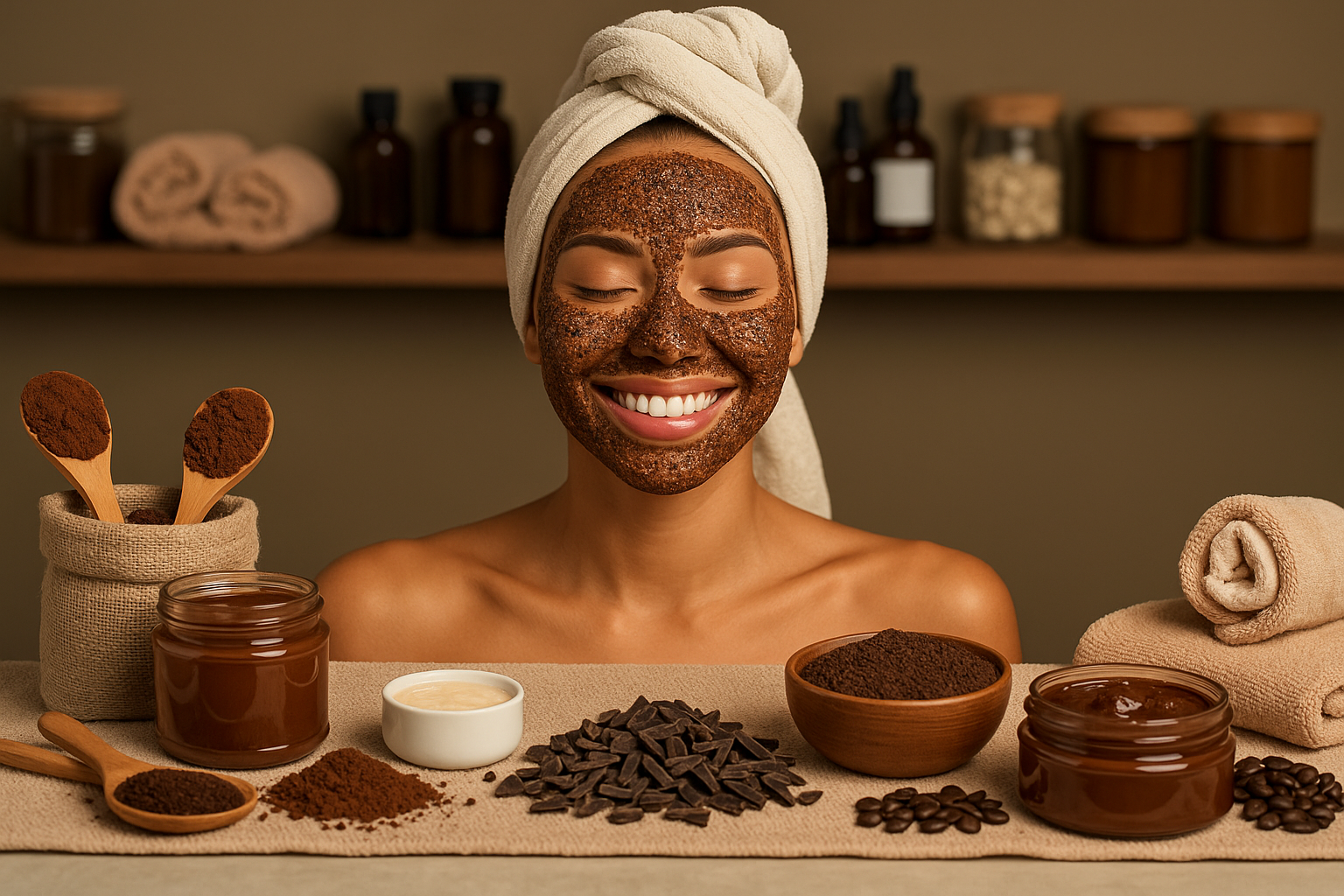Among today’s peptide innovations, copper peptides stand out as one of the most exciting. These small protein fragments, bound to a copper ion, act as messengers that encourage repair, renewal, and antioxidant defense. Because they occur naturally in the human body, topical formulations with copper peptides can harmonize with skin processes rather than forcing change. As a result, they have earned a reputation as both effective and gentle compared to harsher actives.
What Exactly Are Copper Peptides?
Copper peptides are short chains of amino acids attached to a copper ion. The most widely studied form, GHK-Cu, has been researched for decades for its ability to signal tissue regeneration. When applied topically, it interacts with fibroblasts, keratinocytes, and immune cells to support wound healing, antioxidant defense, and collagen production. Studies confirm that GHK-Cu helps restore barrier function and may even improve skin elasticity.
Unlike many actives that only target one mechanism, copper peptides influence multiple pathways at once. Consequently, they fit seamlessly into modern multi-benefit skincare formulas.
Why Do They Matter in Skincare?
Consumers increasingly demand products that deliver results without irritation. Strong acids and retinoids can sometimes be too aggressive, especially for sensitive or reactive skin. Copper peptides, on the other hand, provide a supportive, repair-focused alternative. Moreover, they do more than simply hydrate or brighten—they work beneath the surface to improve the skin’s resilience over time.
- Collagen and elastin stimulation: Encourages firmness and bounce.
- Antioxidant protection: Neutralizes damaging free radicals.
- Barrier repair: Calms redness and strengthens skin defenses.
- Even texture: Promotes healthy turnover and smoothness.
- Recovery support: Speeds visible healing post-procedure or after irritation.
Copper Peptides vs. Other Peptides
Many peptides act as “signalers,” telling skin cells to behave in a particular way. However, copper peptides differ because they carry a trace mineral essential for enzymatic activity. Consequently, they not only trigger messages but also provide the cofactor needed for enzymes like lysyl oxidase, which is critical for cross-linking collagen and elastin. In this way, they bridge signaling and structural action, making them unique among bioactive peptides.
How to Use Copper Peptides in a Routine
Integrating copper peptides into a skincare routine is simple, but strategy matters. They layer well with humectants and barrier-repair ingredients, yet they require some spacing when used with low-pH actives like strong AHAs or pure ascorbic acid. Dermatologists often recommend alternating days for these categories to maximize benefits without stressing the skin.
Beginner-Friendly Routine Example
- Cleanser
- Hydrating toner or mist
- Copper peptide serum
- Moisturizer
- SPF 30+ in the morning
Additionally, copper peptides pair beautifully with niacinamide, ceramides, and hyaluronic acid. These combinations reinforce the barrier while amplifying hydration and repair. Clinical evidence shows that layering peptides with humectants enhances visible outcomes in firmness and smoothness.
Safety Profile and Sensitivity
Most people tolerate copper peptides very well. Nevertheless, patch testing is wise before introducing them to a full routine. Some individuals with extremely reactive skin may notice temporary redness if they layer copper peptides alongside multiple exfoliants. To reduce that risk, dermatologists suggest spacing actives or rotating them throughout the week. Importantly, copper peptides are cosmetic actives, not pharmaceuticals, and current studies show a favorable safety record.
Results Timeline: What to Expect
Like most peptides, copper complexes work gradually rather than delivering overnight change. Patience is part of the process. Generally, users report:
- 2–4 weeks: Skin feels calmer, more hydrated.
- 6–8 weeks: Texture begins to look smoother; early firmness benefits emerge.
- 12+ weeks: Wrinkles appear softer and elasticity more noticeable.
Because copper peptides support structural proteins rather than resurfacing the skin, improvements accumulate with consistent use. Therefore, daily application over months delivers the best outcome. Reviews of anti-aging peptides highlight similar timeframes for measurable results.
Common Myths About Copper Peptides
- “They discolor skin.” High-quality formulas are stable and do not stain. Issues typically arise from poor formulation or contamination.
- “They can’t mix with vitamin C.” In reality, alternating them (AM/PM or on different days) works perfectly well for most people.
- “Results are instant.” Copper peptides are signalers, not exfoliants. Visible changes appear gradually with regular use.
Formulation Insights for Chemists
From a formulation perspective, copper peptides present both opportunities and challenges. They require stabilization against oxidation, and formulations often include supportive humectants and chelators. Moreover, encapsulation technologies are emerging to further enhance stability and penetration. For brands focused on long-term performance, copper peptides can anchor “pro-aging” formulas that balance efficacy and tolerance.
Additionally, copper peptides pair well with other biotech actives such as tranexamic acid or niacinamide, providing complementary brightening and barrier benefits. As consumer interest in multi-functional skincare rises, these synergistic systems help products stand out in a crowded market.
Who Should Consider Copper Peptides?
Because they are gentle yet effective, copper peptides suit both early-prevention routines and advanced pro-aging regimens. They are particularly valuable for:
- Individuals with visible fine lines or elasticity loss
- Users with dehydrated or barrier-compromised skin
- Consumers seeking supportive care post-procedure
On the other hand, highly sensitive individuals using multiple exfoliants should introduce them slowly. Starting a few nights per week and gradually increasing frequency usually ensures better tolerance.
Final Takeaway
Copper peptides are not miracle workers, but they are reliable allies for healthier, firmer, more resilient skin. Unlike aggressive actives that resurface quickly, these bio-signaling peptides strengthen the foundation over time. With consistent use, they support collagen, calm inflammation, and protect against oxidative stress—all while remaining gentle enough for most skin types. Ultimately, they represent a bridge between cosmetic elegance and biological science.
Explore More Ingredients
If you want to learn more about high-performance actives like copper peptides, visit the Grand Ingredients Cosmetic Ingredient Center. You’ll find next-generation peptides, biotech actives, and plant-derived systems designed for today’s most advanced formulations.







